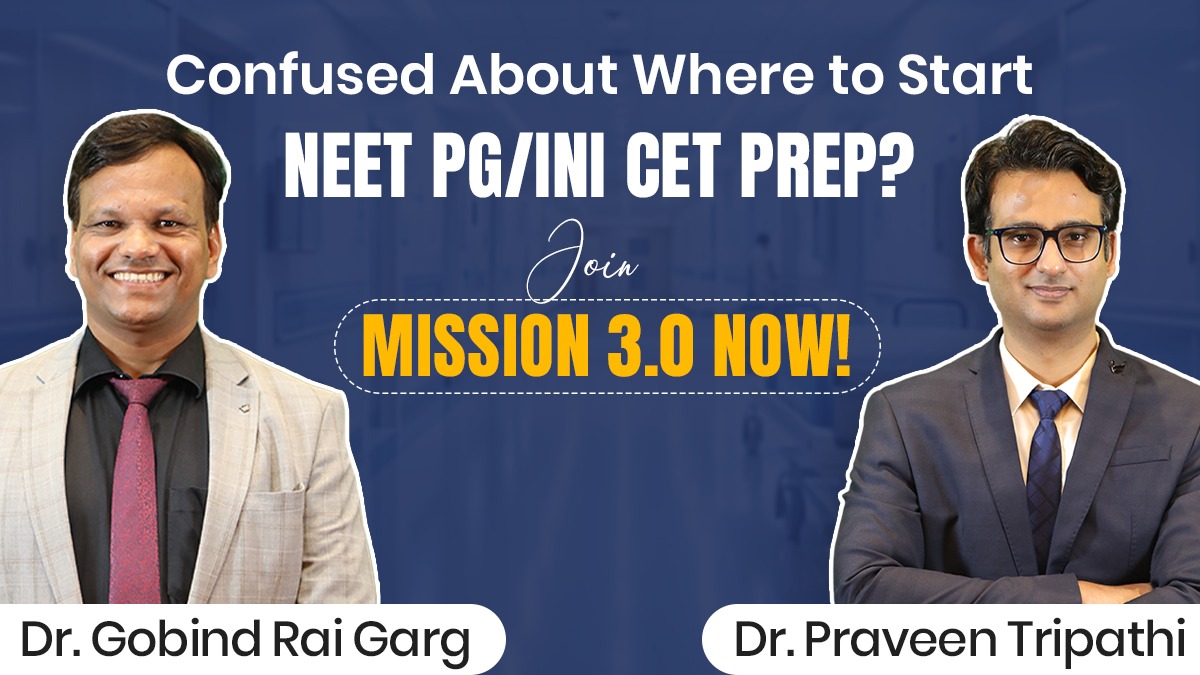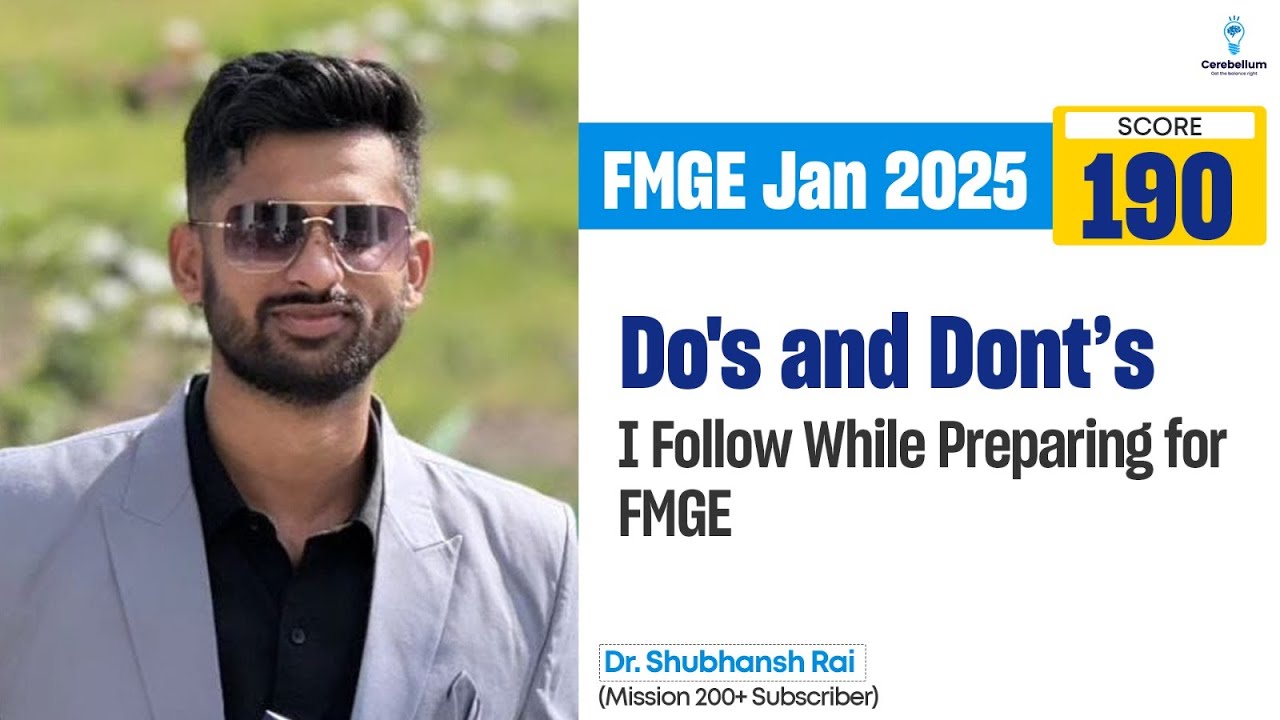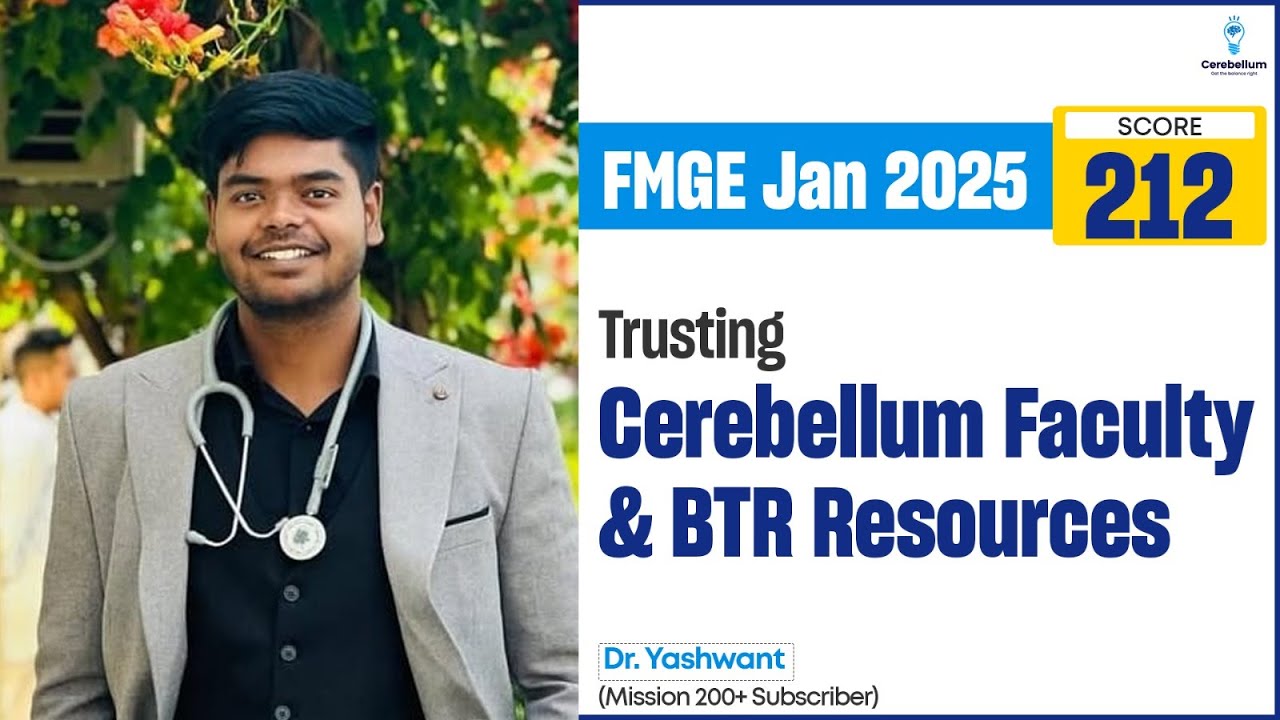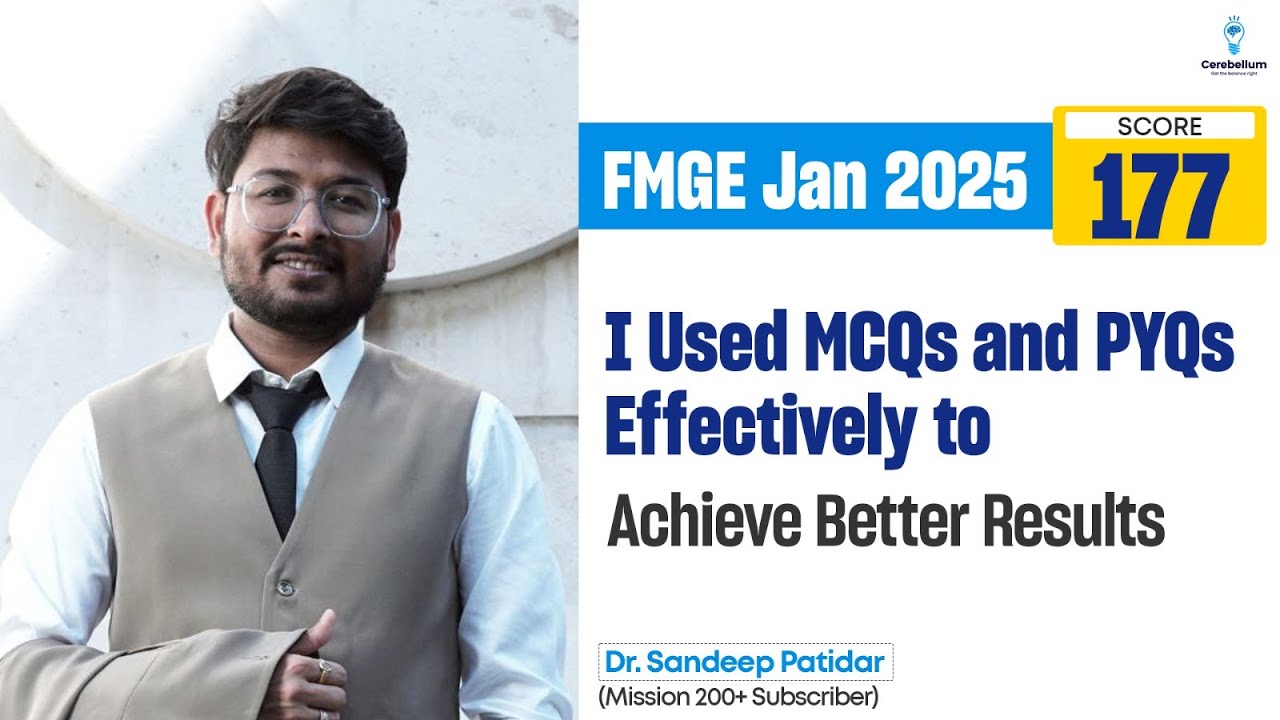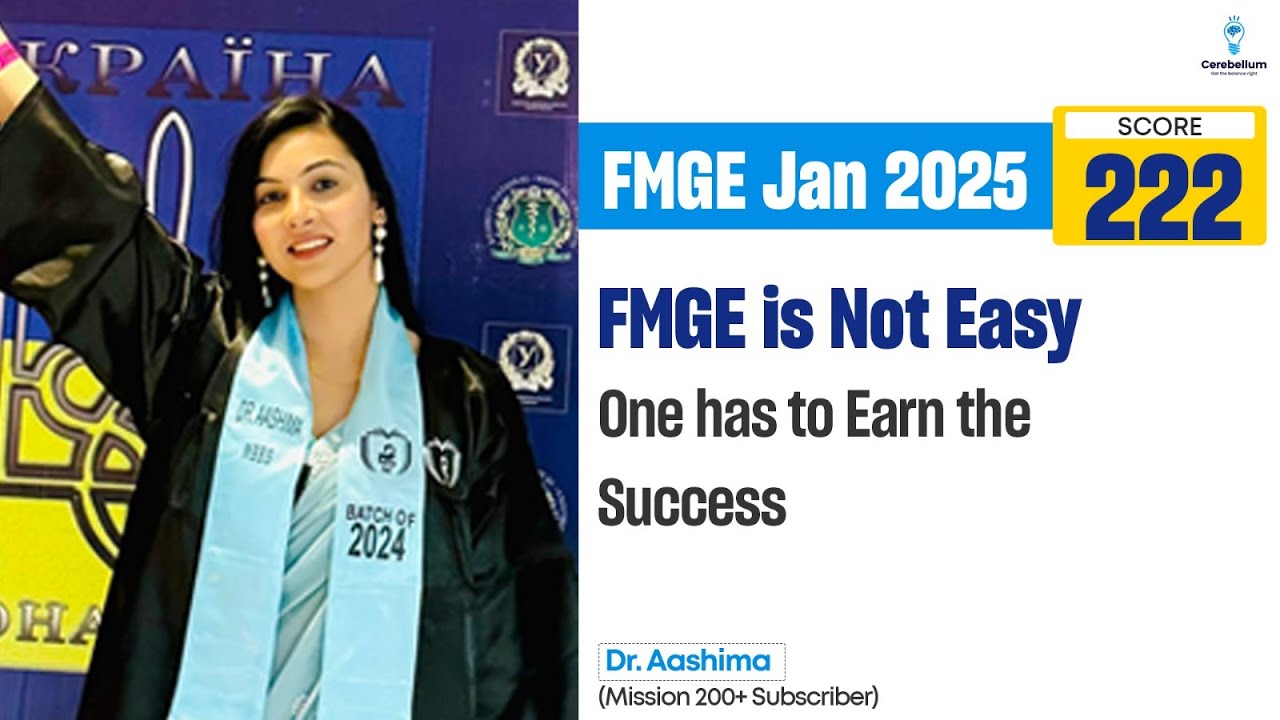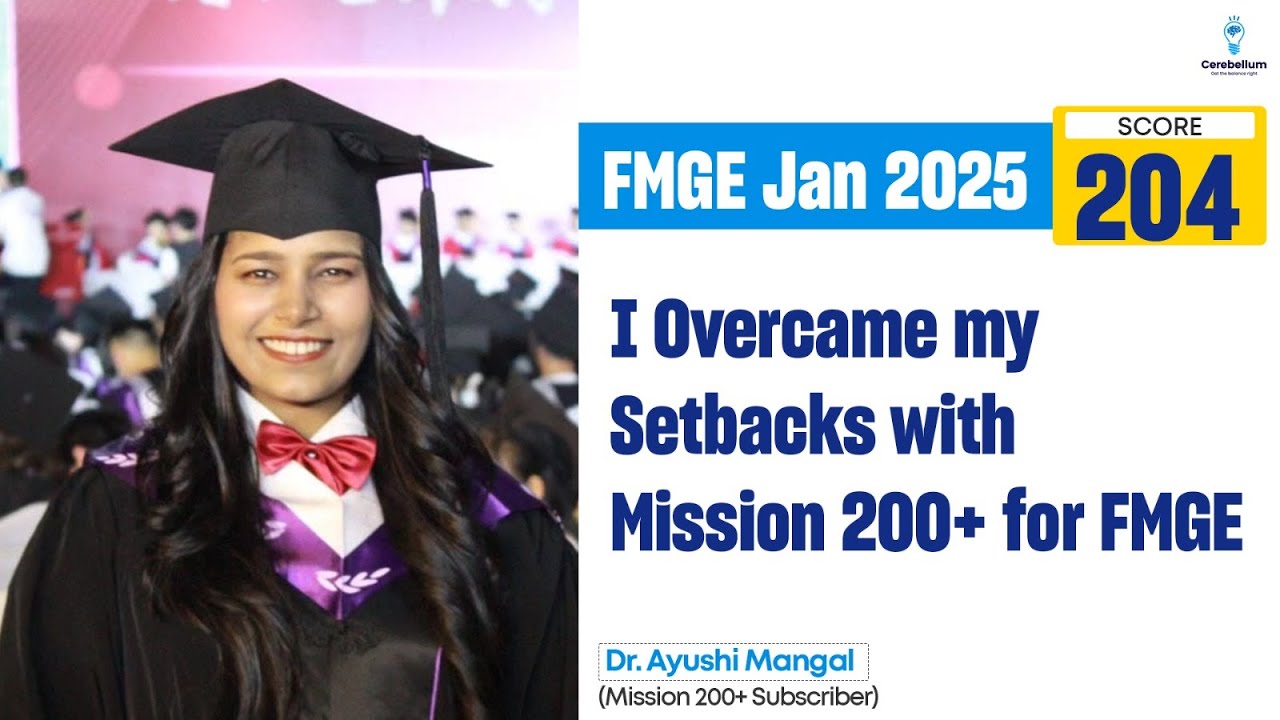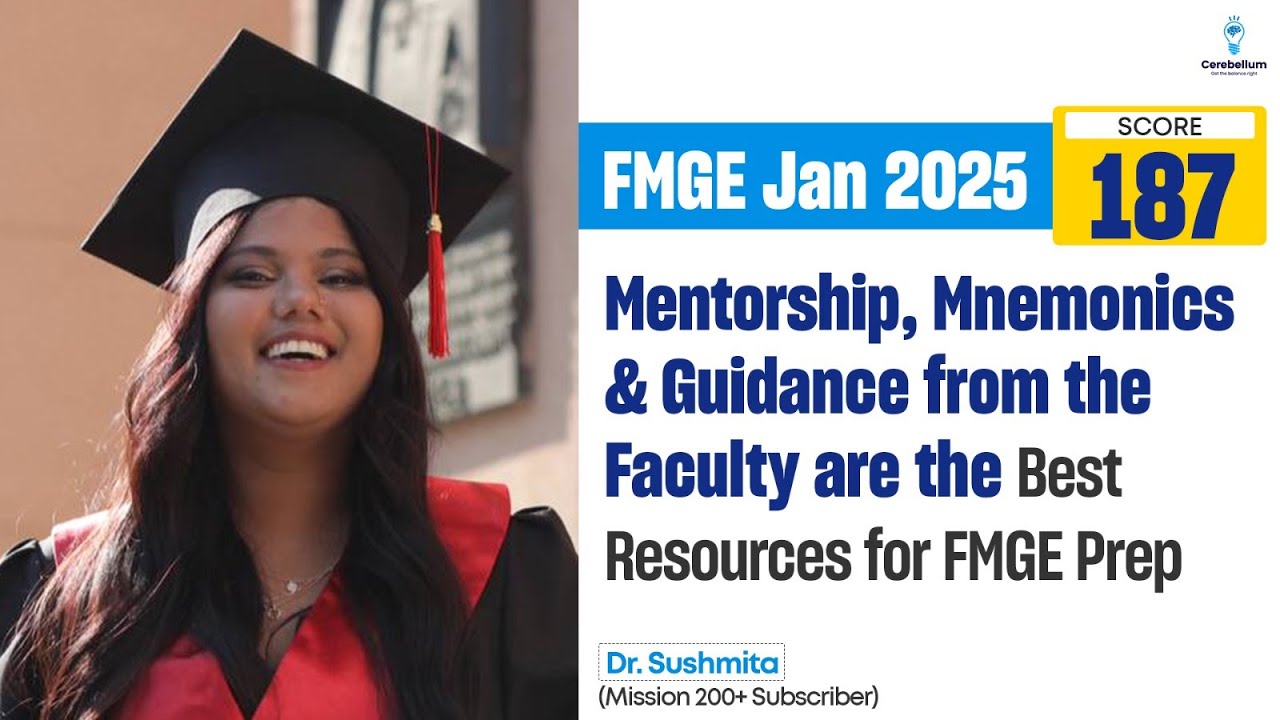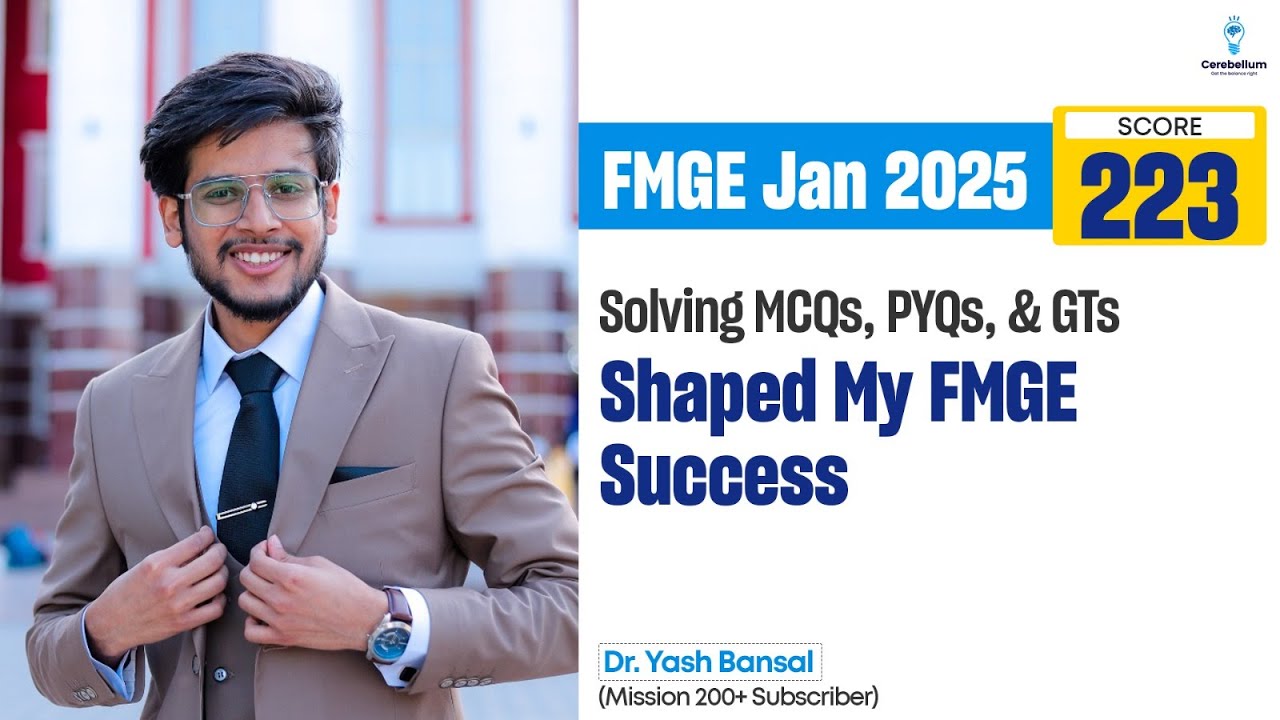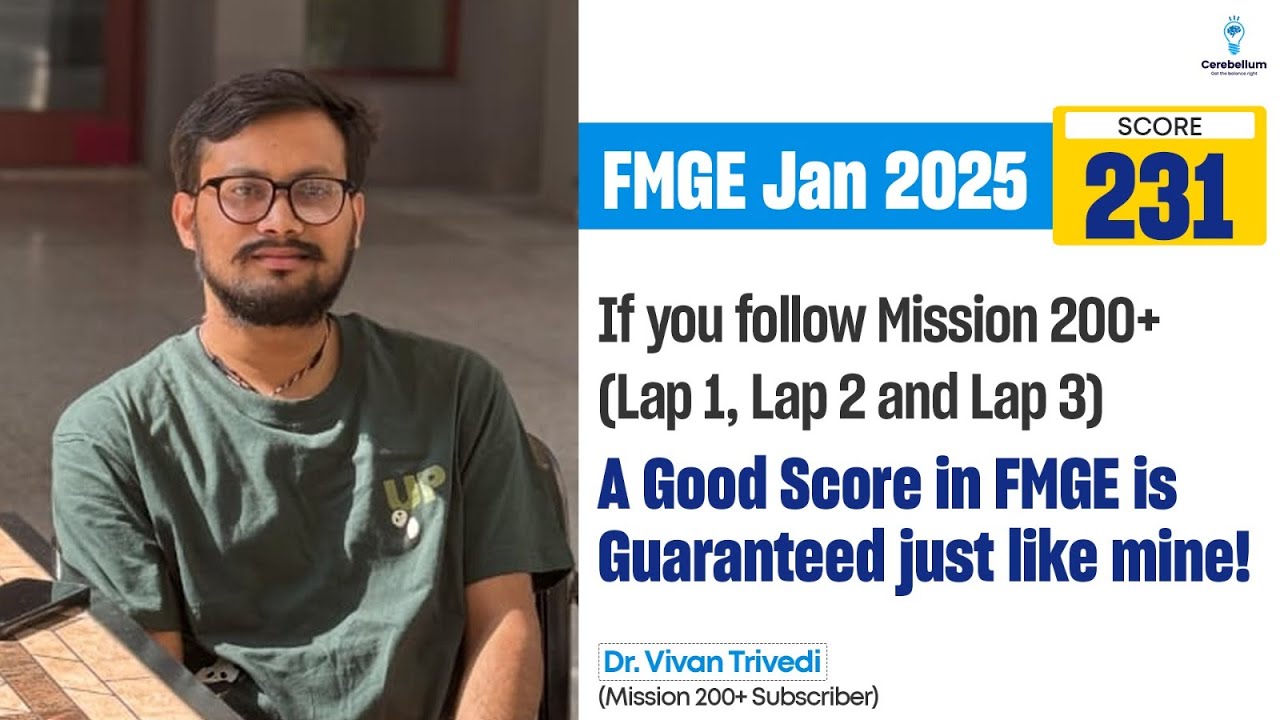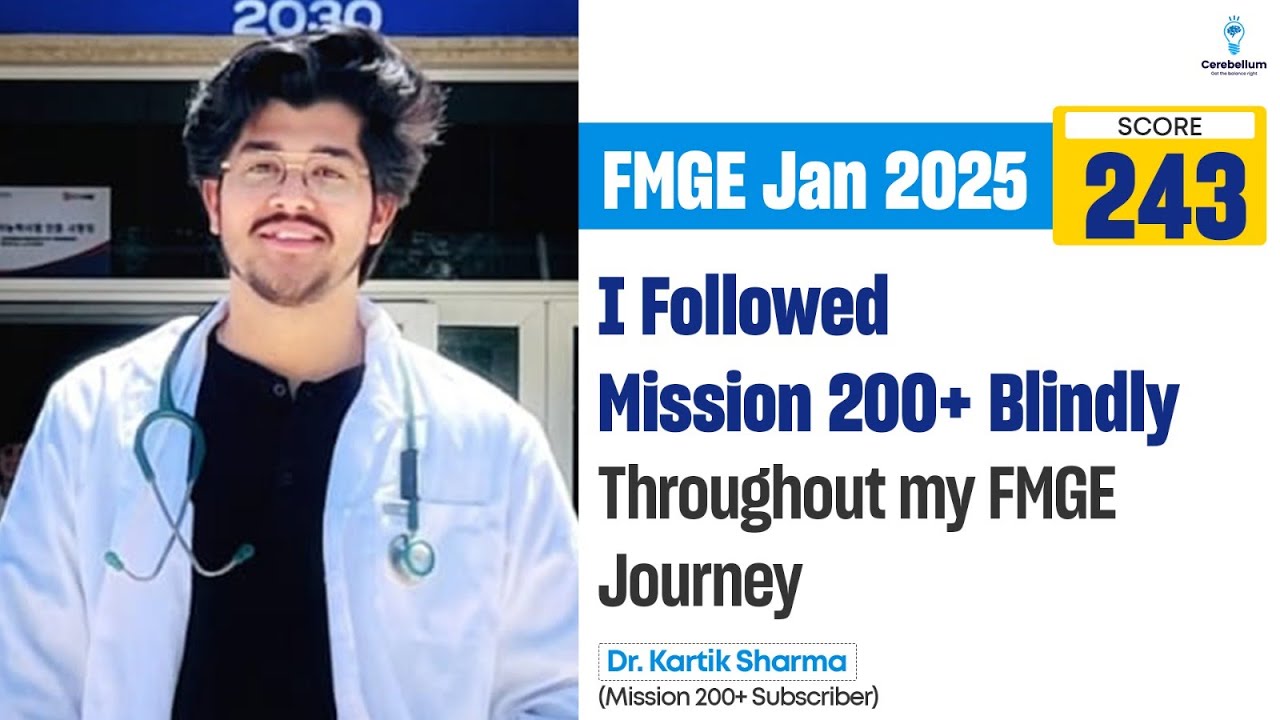All right, so this is the plan: Cerebellum mission 3.0 is launching, and we are calling it the intern/early batch. We are making a distinction in the strategy for two sections, as we said interns and those with a job and without a job. So, we will be starting with lap 1. Now, what will it include? For interns and post interns without a job, your main source of study should be quick revision videos. Now, in the Cerebellum app, you will find a folder called ” quick revision 2.0 which contains the updated quick revision videos which were recorded in 24 and 25.
You have to study from this quick revision videos but I have added here plus minus mission videos. What are mission videos? So, in Cerebellum we have live mission classes. Mission classes are longer than the quick revision videos but shorter than the main videos.
So, for those subjects in which you are weak, please use mission videos; for the remaining subjects, you can use the quick revision videos. Professor, what are live E&Ds? So, basically, in different subjects, we conduct the test that is called an examination and then the teacher discusses. So, you will be given a proper schedule that on this day we have pharmacology 1 test, on this day we have pharmacology 2 test, this day medicine 1, medicine 3. So, different days are given; you will appear for the test during that day, and then the teacher will discuss all the questions in detail and relevant other questions which can be asked why this is not the answer, how to solve the MCQ, all the details will be discussed.
If you have any questions, you can also ask the teacher at that time. So, you will be given a proper schedule of examinations and discussions, which will be conducted live. So, live test and discussion.
Goga, sir, say you are giving me 3 days to cover psychiatry or 4 days to cover psychiatry. The quick revision videos of psychiatry are like 6 hours only. So, say 3 hours one day, 3 hour other day because I am an intern I don’t have much time.
In the morning, when I am going to collect my sample or bring the report, what do I have to do? So, basically, in between, you should keep on solving the MCQs. What you can do is you can make custom modules from whatever topic you have studied the last day 3 hours you have studied, you have seen these topics I have covered. So, custom modules select those topics and make a paper of maybe 20 questions, 50 questions, whatever questions you are likely to be solving.
So, solve those questions in the custom modules, and apart from that, obviously, you will need to apply for the E&T. So, it will go something like this, day 1 you studied the quick revision video, next morning you did the custom module, in the evening you studied the remaining part of the quick revision video and then the next day you come revise it and then in the evening you have live test and discussion. So, your MCQs are getting solved.
Of course, in between, we will have GTs. In cerebellum GT, we follow a motto that Goga sir will tell you. So, basically, GTs should be like the actual exam.
So, we do not try to make GTs too difficult to impress you and not too easy. So, you think that we are highly motivated, we know a lot of things, but in actual exam you cannot perform. So, the GTs in the cerebellum are actually like actual exams.
So that you will get a feel for the type of questions that will be asked in the exam. So, we try to simulate the real exam, and we try very hard to do that. Alright, hold on PYQs, PYTs.
So, here, Gog, a sir I have written plus minus late night PYQ marathon. First of all, let us explain what a late-night PYQ marathon. Every day at around 11 o’clock we make a test live which is made of only PYQs.
40 questions, 30 questions, 50 questions and you are supposed to answer them. Why have I written plus minus? Because you are in the first phase, you are already watching the quick revision video, you are doing the custom module. So, even if you are not able to do the late night PYQ that is fine because you would be asked to do this in the second lap.
I will just show you the second lap. So, here if you do not have time, that is okay. We do not want to overburden you.
See, all of us have done internships. Both Goga sir and I went to UCMS Delhi. It is a college with a very hectic internship.
We know that making big schedules is easy, following them is not going to be easy. So, we want to keep it as real as possible by trying to step ourselves into the shoes of an intern or somebody who is doing a job. So, that is why I have kept it here plus minus.
GTEs, of course, you have to do. We will wrap this up by July 15. Now, let us talk about the post-interns without a job.
This is the big difference. For the interns and with the job, we were saying that quick revision videos would be a good main source. For you, that is not true.
You have to do mission videos. They are bigger, they are more comprehensive, and I will like to add here, try to do, obviously, you have to do mission videos of all the subjects plus in the mission video also whichever topic you feel that you have not grasped properly, try to see that from the main video source. 100 percent, sir, 100 percent.
So, there are multiple types of mission videos because we do a lot of live classes. If you go into the app, you will find Mission 2.0, batch 3, third batch or batch 3. This is the most recent batch, and it is the most updated. See, the good thing about Cerebellum is our content gets updated every six months because we have new batches.
So, that is a great thing. So, you can use these videos, they would be in the app. Along with that, of course, you also have to do the same E&Ds.
Definitely, you have to do custom modules, live E&Ds and GTs and for you, because you have more time, I have added late night PYQ marathon. Now, here I want to make one thing clear. Late night PYQ marathons are given in Cerebellum app in two forms.
As we move closer to the exam, they are mixed back, all subjects put together. When we are farther from the exam, we have late night PYQ marathons subject wise. So, you can just go in the app, in the test section, click on the late night PYQs, scroll down and you would find the late night PYQs for all the subjects divided into different chunks, day 1, day 2, day 3. So, you have to do it accordingly.
GTs, we have discussed that on July 15th, we will complete the course. All right. So, on 15th July, we completed lap 1A, where you are using quick revision videos or mission videos plus off course questions.
After 15th July, we will start with lap 1B. Now, what will happen by this time? On 15th June, we have our NEET PG exam. If the government does not postpone it, hopefully, they will not.
And this time, it is unlikely they would do that. So, we would have result by say, end of June and by 15th July, we would start with a new batch. So, that would be a comprehensive live batch, where all the classes would be done live.
Again, all the E&Ds would be done. All those things, late night PYQ, midday module, everything will start. You guys who have already completed one reading, you have this advantage.
If you have not done so well in one of the subjects, you can attend it later. If you are already confident in it, just revise it, but appear for the E&Ds and the GTs. So, this is the first revision for you.
For many of our students, especially post interns, what they did? During this phase, they did two revisions. Goga, sir, they did two revisions. And in the morning, they would revise themselves.
In the evening, they would revise with a live lecture. And they got great results. So, you can do that also.
This would continue again for around 90 to 100 days. And somewhere near the last week of October, we would start the marathon INI CET. What is marathon, Goga sir? So, basically, as the name suggests, in the seven days, we will complete all the subjects, all the important points.
So, in pharmacology, in four hours, I will try to summarize everything which is likely to be asked in the exam. So, all these subjects will be dealt with like this. So, there will be live coverage of all 19 subjects in the last seven days.
It’s usually an 80-hour seven-day program. And the biggest problem of students, how to revise everything in the end, that gets solved with marathon. We hope that you do get selected in INI CET exam.
But those of you who do not, then we start with the lab 2 between INICT and NITPG. Depending upon how much time do we have, this could be again live classes plus ENDs. If we have lesser time, only ENDs.
This we would be able to tell you only when we get to know about the dates. And then again, we will have marathon NITPG. Again, seven days 80-hour program, this time focusing on NITPGs.
So, if you are a student who is starting today, imagine the number of revisions that you would have. 1, 2, 3, 4, 5, 6. And the schedule is not that difficult. The only thing that we are talking about is maintaining the regularity and the big word, the structure.
Follow the structure. This schedule has been structured so beautifully. And now that we are doing this for a couple of years, we know that the students who follow it, they get great ranks.

